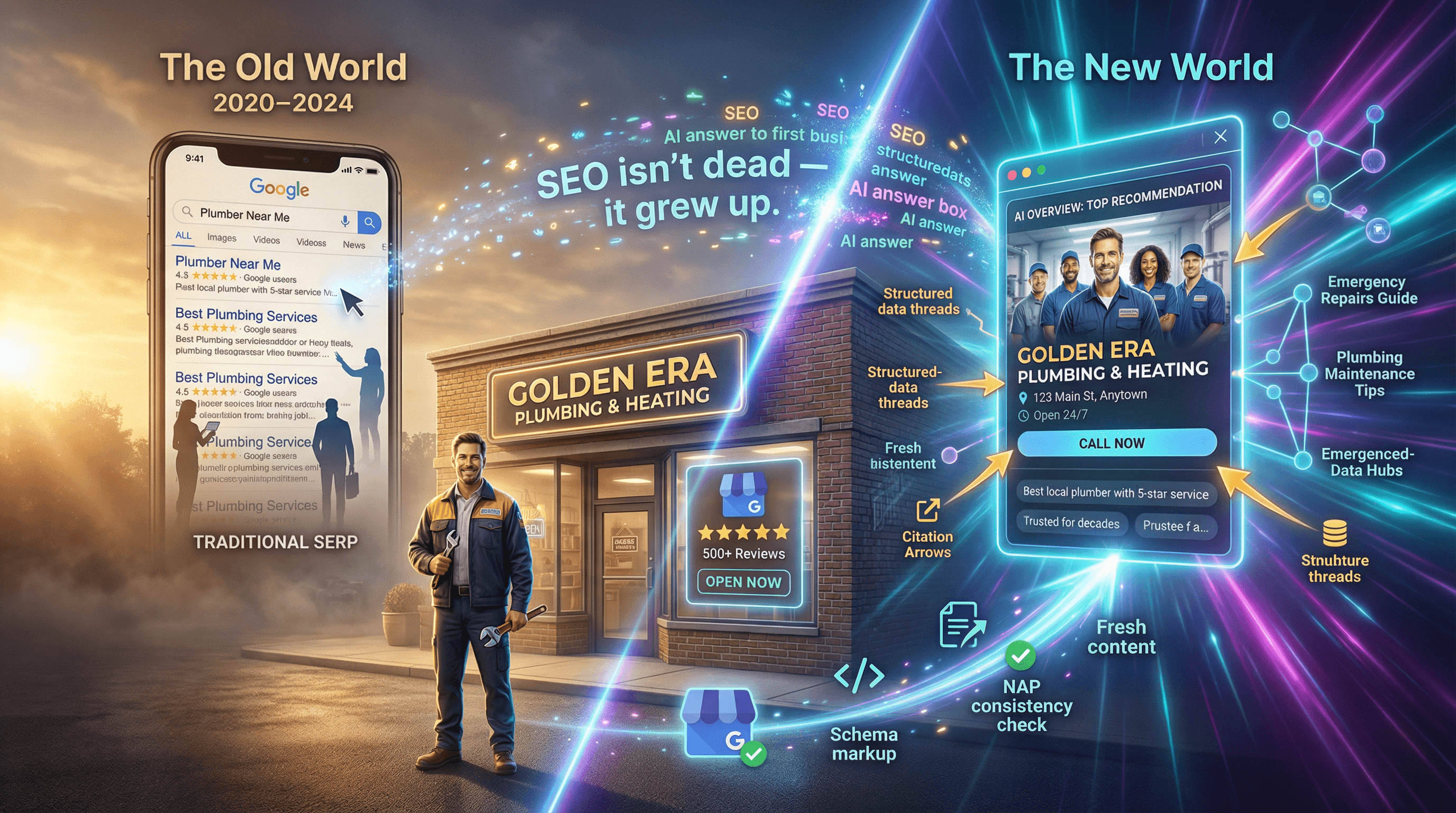Consulting
Discover why alignment, not balance, is key for consulting success. Learn practical steps to achieve professional and personal fulfillment in your consulting practice.
We hear a lot about 'balance' these days, especially when it comes to work and life. But honestly, trying to keep everything perfectly balanced feels like juggling too many balls, and eventually, one is bound to drop. It’s exhausting. What if, instead of striving for this elusive balance, we focused on alignment? For consultants, this means making sure your daily actions line up with your core values and your bigger professional goals. It's about living and working with intention, not just going through the motions.
Key Takeaways
Forget the myth of perfect balance. Life is always shifting, and trying to keep everything perfectly even is a losing game.
Alignment is about connecting what you do every day with what truly matters to you.
In consulting, alignment means your professional purpose guides your client work and business decisions.
Feeling disconnected or seeing inconsistent results is a sign your consulting practice needs a realignment.
Focus on integrating your work with your values for a more fulfilling and sustainable consulting career.
Understanding Alignment Over Balance
The Myth of Perfect Balance
We hear it all the time, right? "You need to find balance." It’s like this golden ticket to a happy, successful life. People talk about balancing work and personal life, family and friends, ambition and relaxation. It sounds great in theory, but let's be honest, it often feels impossible. Life isn't a perfectly portioned plate where every single thing gets an equal slice, all the time. It's more like a juggling act, but instead of balls, we're juggling responsibilities, desires, and unexpected curveballs. Trying to keep everything perfectly balanced often leaves us feeling like we're failing because, well, perfect balance is usually just a myth.
Life's Shifting Tides
Think about it – life is constantly changing. Some seasons are all about pushing hard in your career, others are about nurturing relationships, and sometimes, you just need to focus on rest and recovery. These aren't static states; they ebb and flow. Trying to force a rigid "balance" when life is naturally shifting is like trying to hold back the tide. It's exhausting and ultimately, unproductive. We're not meant to be perfectly balanced all the time. Instead, we're meant to adapt and move with the natural rhythms of our lives.
The idea of a perfectly balanced life is often an illusion that sets us up for disappointment. It suggests a static state that rarely exists outside of our imaginations.
Why Balance Falls Short
When we chase balance, we often end up feeling spread too thin or like we're not doing anything well. It sets an unrealistic standard. If one area of your life demands more attention – say, a major project at work or a family emergency – something else has to take a backseat. Pretending you can give 100% to everything, all at once, is a recipe for burnout and feeling like a failure. It’s not about giving equal time or energy to every single aspect of your life every single day. That’s just not how life works.
Here's a quick look at why the balance approach often misses the mark:
Unrealistic Expectations: It sets a standard that's nearly impossible to meet consistently.
Leads to Guilt: When you inevitably can't balance everything, you feel guilty about what's being neglected.
Ignores Life's Natural Flow: It doesn't account for the changing demands and priorities that life throws at us.
Focuses on Division: It encourages compartmentalizing life rather than seeing it as a whole.
The Core Principles of Alignment
Forget trying to juggle everything perfectly. Alignment is about making sure what you're doing actually fits with who you are and what you want. It’s less about a perfect split and more about things making sense together.
Connecting Actions to Values
This is the bedrock of alignment. It means your daily tasks, big projects, and even how you interact with clients should echo your core beliefs. If you value honesty, your communication should be direct. If you believe in thoroughness, your work should reflect that attention to detail. When your actions line up with your values, you feel more solid, less like you're pretending.
Identify your top 3-5 core values. What really matters to you, deep down?
Review your current projects and client work. Do they align with these values?
Make conscious choices. If a project or client clashes with your values, it might be time to reconsider.
When your work feels like a natural extension of yourself, rather than a performance, you tap into a different kind of energy. It’s not about forcing things; it’s about things flowing because they belong.
Intentional Living
Alignment pushes you to live with purpose. Instead of just reacting to whatever comes your way, you make deliberate choices about where your time and energy go. This means saying 'yes' to things that move you forward and 'no' to distractions that pull you off course. It’s about being the driver, not just a passenger, in your own life and business.
The Power of Integration
Integration means bringing different parts of your life and work together harmoniously. Instead of seeing your professional life and personal life as separate boxes, you look for ways they can support each other. For example, if you value learning, you might integrate that by taking courses that benefit both your personal growth and your consulting skills. It’s about creating a cohesive whole where everything works together, rather than fighting against itself.
Achieving Alignment in Your Consulting Practice

So, you're a consultant. You're good at what you do, helping clients solve problems and move forward. But are you feeling like you're just going through the motions? Or maybe you're taking on projects that just don't sit right with you anymore. That's where alignment comes in. It's not about juggling a million things perfectly; it's about making sure what you're doing actually matters to you and your clients.
Defining Your Professional Purpose
What's the real reason you got into consulting in the first place? Beyond the billable hours and the client meetings, what drives you? It's easy to get caught up in the day-to-day hustle and forget why you started. Taking a moment to really think about your core purpose can change everything.
What problems do you genuinely enjoy solving? Not just the ones that pay well, but the ones that make you feel like you're making a real difference.
What kind of impact do you want to leave? Think long-term. What legacy do you want your work to build?
What are your non-negotiables? What values absolutely must be present in the work you do?
Figuring out your purpose isn't a one-time thing. It's more like checking in with yourself regularly. Life changes, you change, and your purpose might shift a little too. The key is to be aware of it.
Strategic Client Relationships
Not all clients are created equal, and not all client relationships will serve your purpose. Trying to please everyone or taking on every project that comes your way can quickly lead to misalignment. Instead, think about building relationships with clients who:
Share your values: When you and your client are on the same page about what's important, the work flows much better.
Are open to your guidance: You're the expert. A good client relationship means they trust your advice and are willing to collaborate.
Present challenges you find meaningful: These are the clients that push you to grow and make your work interesting.
It might mean saying 'no' to some opportunities, and that's okay. Saying 'no' to the wrong clients frees you up to say a big 'yes' to the right ones.
Ethical Consulting Frameworks
This is where your personal values meet your professional practice. Having a clear ethical framework acts as your compass, guiding your decisions, especially when things get tough. It's about more than just following rules; it's about operating with integrity.
Transparency: Be upfront with clients about what you can and cannot do, your fees, and your process.
Confidentiality: Protect your clients' information rigorously. It's the bedrock of trust.
Objectivity: Provide advice based on facts and your best judgment, free from personal bias or external pressure.
When your consulting work is built on a solid ethical foundation, it not only protects you but also builds a reputation that clients can rely on. It’s about doing good work, the right way.
Signs You Need to Realign Your Consulting
Sometimes, you just know things are off. It’s not a sudden crash, more like a slow drift. If you're a consultant, these feelings can creep in, making your work feel less like a calling and more like a chore. Recognizing these signs is the first step to getting back on track.
Feeling Disconnected from Your Work
This is a big one. Remember when you used to get excited about projects? Now, it feels like you're just going through the motions. The spark is gone. You might find yourself procrastinating more, or just not feeling that same drive to dig deep. It’s like your heart isn't in it anymore, and that disconnect can be really draining.
Inconsistent Client Outcomes
When you're not aligned, your work can start to suffer. Maybe your clients aren't getting the results they used to, or perhaps the projects themselves feel less impactful. It’s not necessarily about a lack of skill, but more about a lack of focus or a disconnect from the core purpose of the work. This can show up in a few ways:
Project Scope Creep: Projects start to meander without clear direction.
Client Dissatisfaction: Even if the work is technically fine, the client might not feel the value.
Missed Deadlines: A general lack of momentum can lead to delays.
Erosion of Personal Fulfillment
This is perhaps the most telling sign. When your consulting work doesn't align with your values or your sense of purpose, it chips away at your overall happiness. You might feel tired all the time, even when you're not working excessively. The joy you once found in problem-solving or helping clients starts to fade, replaced by a sense of obligation or even resentment. It’s like trying to run a marathon with a heavy weight tied to your ankle – exhausting and demoralizing.
When your professional life feels out of sync with who you are and what you believe in, it’s not just your career that suffers; your entire well-being takes a hit. It’s a signal that something needs to change, not just in your schedule, but in your core approach.
Practical Steps for Consulting Alignment
So, you've realized that chasing that elusive 'balance' is more exhausting than helpful. It's time to shift gears and focus on alignment. But how do you actually do that in the day-to-day of running your consulting practice? It's not about perfectly dividing your time into neat little boxes; it's about making sure what you're doing actually matters to you and your clients.
Conducting a Personal and Professional Audit
Before you can realign, you need to know where you stand. Think of this like checking the tire pressure and alignment on your car before a long trip. If one tire is low or the wheels are off, you're going to have a bumpy, inefficient ride. The same applies to your consulting work.
Values Check: Sit down and list out your core personal values. What truly matters to you? Honesty? Innovation? Client success? Community impact? Be honest here. Then, look at your current projects and client work. Where do these overlap? Where are the big gaps?
Skills & Interests: What parts of your work genuinely excite you? What tasks do you find yourself putting off? Are you using your best skills, or are you stuck doing things that drain you?
Client Fit: Review your current client roster. Are these clients whose problems you enjoy solving? Do they respect your approach? Are they aligned with your values and the kind of impact you want to make?
Financial Reality: What are your financial needs? Does your current work structure meet them? Sometimes, a misalignment here can force you into projects that don't fit, so understanding this is key.
This audit isn't about judgment; it's about gathering information. You can't fix what you don't acknowledge. Think of it as a diagnostic tool for your business and your career.
Setting Boundaries for Sustainable Consulting
Once you know where you want to be aligned, you need to protect that space. Boundaries aren't about saying 'no' to everything; they're about saying 'yes' to what matters most. Without them, the demands of clients and the general chaos of business can easily pull you off course.
Time Boundaries: Define your working hours and stick to them as much as possible. This means not answering emails at 10 PM or taking calls on weekends unless it's a pre-agreed emergency. Communicate these boundaries clearly to your clients.
Scope Boundaries: Be clear about what's included in your services and what's not. It's easy for projects to expand beyond their original scope, leading to burnout and resentment. Have a clear contract and be willing to revisit it if significant changes are requested.
Energy Boundaries: Recognize what activities drain your energy and what replenishes it. Schedule time for activities that recharge you, whether it's exercise, reading, or spending time with loved ones. Protect this time fiercely.
Prioritizing Impact Over Activity
It's easy to get caught up in being busy. We see a full calendar and think we're being productive. But are we actually making a difference? Alignment means focusing your efforts where they'll have the most meaningful effect, rather than just filling your hours.
Define 'Impact': What does real impact look like for your consulting work? Is it helping a client achieve a specific financial goal? Is it transforming their team's culture? Is it solving a complex technical problem? Be specific.
Focus Your Efforts: Once you know what impact you're aiming for, direct your energy towards the activities that directly contribute to it. This might mean saying no to smaller, less impactful tasks or delegating them.
Measure What Matters: Track your progress not just by hours worked or tasks completed, but by the actual outcomes you're achieving for your clients and the alignment with your own goals. This could involve client testimonials, case studies showing results, or even just a personal reflection on whether the work felt meaningful.
The Long-Term Benefits of Consulting Alignment

When you're truly aligned in your consulting work, it's not just about feeling good day-to-day. It builds something much more solid over time. Think about it like maintaining your car; getting regular wheel alignment means your tires wear evenly and last longer. It's the same for your career. When your actions line up with your core values and purpose, you start to see some real advantages.
Enhanced Professional Reputation
Consistently showing up with a clear purpose and acting in ways that reflect that purpose builds trust. Clients notice when you're not just going through the motions. They see someone who is genuinely invested and understands their needs on a deeper level. This kind of integrity is what makes people want to work with you, and more importantly, refer others to you. It's about being known for something specific and reliable, not just for being busy.
Deeper Client Trust and Loyalty
Alignment means you're not just selling services; you're offering solutions that genuinely fit your clients' situations and your own capabilities. This creates a strong bond. When clients feel understood and see that your work directly contributes to their goals in a meaningful way, they stick around. They become partners, not just customers. This loyalty is gold in the consulting world, leading to repeat business and strong testimonials.
Sustainable Career Growth
Chasing every opportunity can feel productive, but it often leads to burnout and scattered results. Alignment, however, helps you focus. It means saying 'no' to things that don't fit and 'yes' to the work that truly matters. This focused approach allows you to build a reputation in a specific area, becoming a go-to person for certain challenges. It’s about building a career that feels fulfilling and lasts, rather than one that burns bright and fades fast. This kind of focused growth is key for long-term success in management consulting firms.
Prioritize projects that align with your expertise and values.
Develop long-term relationships with clients who share similar goals.
Continuously refine your services based on genuine impact, not just activity.
When your consulting practice is aligned, you're not just working harder; you're working smarter. The effort you put in directly contributes to your goals and your clients' success, creating a positive feedback loop that fuels both your professional reputation and your personal satisfaction.
So, What's the Takeaway?
Look, chasing perfect balance in life is like trying to catch smoke. It’s always shifting, and you’ll likely end up feeling like you’re failing. Instead of trying to juggle everything perfectly, focus on alignment. Think about what truly matters to you right now – your goals, your values, your well-being. When your actions line up with those things, even when life gets messy, you’ll feel more grounded and purposeful. It’s not about having equal parts of everything, but about making sure the parts you have are pointing in the right direction for you. So, ditch the impossible quest for balance and start building a life that feels right, one aligned step at a time.
Frequently Asked Questions
What's the big difference between 'balance' and 'alignment'?
Think of balance like trying to keep a bunch of plates spinning at once. It's hard and one might drop! Alignment is more like making sure all the important parts of your life are pointing in the same direction, working together smoothly. It's about what truly matters to you and making sure your actions match those things.
Why is 'balance' not a good goal?
Life is always changing, like the weather or the tides. Trying to keep everything perfectly balanced all the time is impossible and can make you feel like you're failing. It's like trying to hold a wobbly tower steady – it's exhausting and often doesn't work.
How can I figure out what my 'alignment' should be?
Start by thinking about what's really important to you. What are your core values? What makes you feel good about yourself and what you do? When you know what matters most, you can start making choices that line up with those things.
What does 'alignment' look like in my job or business?
In your work, alignment means that the tasks you do and the clients you work with actually connect to your bigger goals and values. It's about doing work that feels meaningful and makes a difference, rather than just being busy.
How do I know if I'm 'out of alignment'?
You might feel disconnected from your work, like you're just going through the motions. Maybe your results aren't as good as they could be, or you just don't feel happy or fulfilled. It's a sign that something isn't quite right.
What are some easy steps to get more 'aligned'?
You can start by looking at how you spend your time and energy. Are those things helping you move toward what you want? Setting clear boundaries, saying 'no' to things that don't fit, and focusing on what truly matters can make a big difference.
























































































